For the Elderly: 7 Tips on How to Sleep Better
Sleep patterns usually change with age. Sleep quality is reported to be less satisfactory for older adults than it was for younger adults. Many people suffer from sleep deprivation or insomnia, especially for seniors, a good night's sleep can be particularly unattainable. According to a recent study, more than half of older adults report experiencing insomnia at least twice a week.
Sleep quantity and quality are directly connected to good health, and insufficient sleep can negatively impact health. Seniors, who are having sleep disorders, taking medications, or suffering from chronic health problems such as diabetes and heart disease, are particularly affected.
Since we spend almost 1/3 of our lives sleeping, looking at the relationship between aging and sleep is fundamental. To promote the health of the elderly, understanding how aging can affect health is vital for addressing the unique needs for a good sleep of older adults.
It is natural for sleep patterns to change after 60. Seniors may awaken more frequently during the night when hormone and melatonin levels have changed, take longer to fall asleep, or sleep lighter. There may be days when seniors go to sleep earlier and wake up before the birds. Nevertheless, studies show that seniors still require between seven and eight hours of sleep each night—not much less than their younger counterparts.
Sleep deprivation shouldn't be taken lightly. It compromises our immune systems, impairs our daily activities, increases confusion, and affects seniors' mood and concentration, which can result in falls and injuries.
To get a good night's sleep, there are a variety of holistic methods we can utilize. Check out the sleep tips for the elderly below.
1. Sleep on a regular schedule
When you get older, you have a harder time recovering from lost sleep. It is, therefore, best to avoid abrupt changes in sleep schedules. In other words, you must get up and go to bed at the same time every day and watch out for excessive naps. You will be able to fall asleep faster and rise more easily by creating a sleep schedule.
2. Avoid being stimulated before bed
Don't engage in stimulating activities late at night, such as eating (especially spicy foods), watching TV, or having lively discussions. We can lose sleep quality and wake up groggy if we consume substances like caffeine, nicotine, and alcohol. It is also difficult to fall asleep with a television, cell phone, and bright lights in the bedroom. Avoid watching television while you are sleeping and keep the television in another room. Try to refrain from using electronic devices in the bedroom and use the bedroom only for sleep.
To stay calm before bed, things like a bath, a reading session, or some quiet time before bedtime are enjoyed by many older people. You can also try progressive muscle relaxation - tensing and then relaxing each muscle group in your body. There is evidence that it can relieve insomnia.
3. Create a sleep-friendly environment
Noise and light in the background can sometimes be comforting, but they are often a cause for poor-quality sleep and wake-up more often. Sleep can be disrupted by changing temperatures, light levels, and sounds. If you want a decent sleep environment, your bedding should be convenient, comfortable, and supportive. Research has shown that good-quality positioning pillows can provide seniors with reliable relief from pain and stress. Bed Wedge Pillows, for example, can relieve respiratory problems, acid reflux, snoring, and pain in the back, neck, and shoulders. Take into account the age of your mattress as well. It may be time to replace your current mattress with one that can provide better support. It‘s also smart to make use of layers of varying weight covers, so they can be removed during the night or added as necessary.
4. Manage your stress
A burden on your mind can prevent you from sleeping well at night. When you're feeling overwhelmed, prioritize what's important and delegate if you need to. If you want to leave your stress and anxiety behind, meditate before bed to help clear your mind. In addition, if daily tasks have become too challenging, hire a caregiver to handle the transportation, errands, and household duties.
5. Increase daily physical activity
Obtaining a healthy lifestyle makes exercise a top priority for older folks. It is proven that older people who exercise regularly sleep longer and have better sleep quality. The more activity you do during the day, the more ready your body is to recuperate at night. You can increase your step count during the day or sign up for a group exercise class to get your heart rate up. In order to increase the odds of getting a good night's sleep, exercise outdoors - a brisk walk or a swim will make you more tired when it's time to go to bed. Then, you'll drift off to sleep faster. As a bonus, exercise promotes overall health and well-being, as well.
6. Ensure a healthy diet
A healthy diet rich in nutrients, lean proteins, and heart-healthy fats will support a good night's sleep. You should also prepare plenty of fruits, which contain minerals that ease your muscles and help you fall asleep faster. Additionally, having a warm drink before bed, like heated milk or (non-caffeinated) tea, can help regulate melatonin production.
7. Talk to your doctor
Speak to your doctor if you are having difficulty falling asleep or staying asleep so that any underlying medical conditions can be ruled out. Some medications can also cause sleeplessness, so be sure to consult your physician about any side effects you may be experiencing and seek for medical sleep tips if needed.
Having trouble sleeping can be difficult, but there are options, and you are not alone. Speak with family and friends about your questions, and consider consulting your physician if you have deep concerns. Or at least you can start with the tips mentioned above. Although they do not work overnight and require time to adjust and need to be done regularly for best results, they are a choice. Try one or two at a time to see what works for you and what needs to be adjusted.
Recommend Products
-
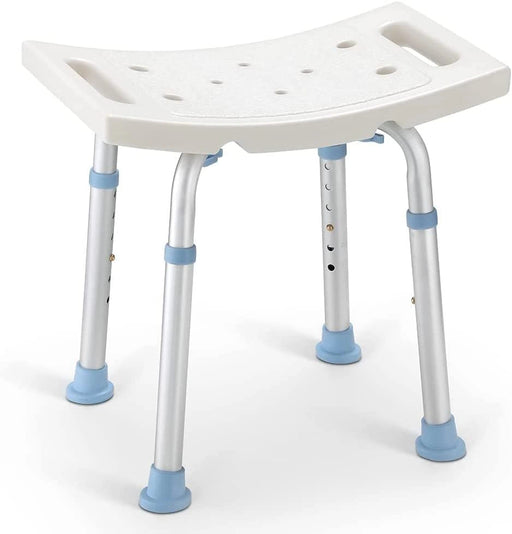 Sale
Sale
Standard - 300LBS Capacity Shower Stool
Original price $51.99From Original price $28.99Original price $51.99Current price $28.99From $28.99Current price $28.99OasisSpace Medical Square Shower Stool for Bathtub OasisSpace Square Shower Stool for Bathtub is approved as the highest standard(FDA) for medical...
View full detailsSaleOriginal price $51.99From Original price $28.99Original price $51.99Current price $28.99From $28.99Current price $28.99 -
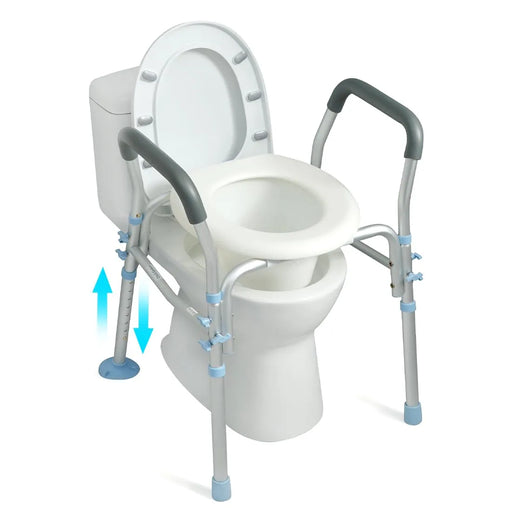 Sale
Sale
300LBS Capacity Raised Toilet Seat with Arms
Original price $120.99From Original price $69.99Original price $120.99Current price $69.99From $69.99Current price $69.99OasisSpace Raised Toilet Seat with Arms - Safe and Convenient OasisSpace Raised Toilet Seat with Arms provides stable support for users to sit dow...
View full detailsSaleOriginal price $120.99From Original price $69.99Original price $120.99Current price $69.99From $69.99Current price $69.99 -
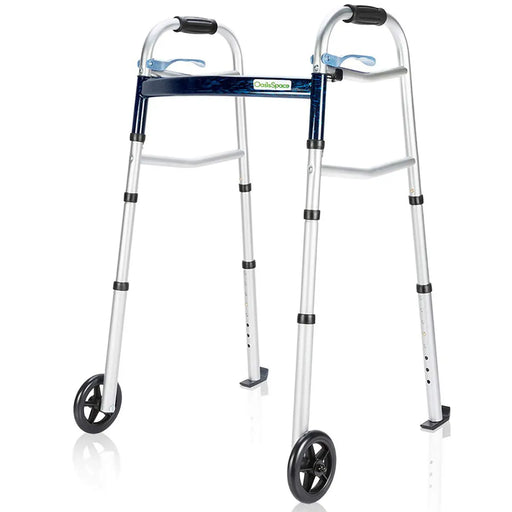
350LBS Capacity 2 Wheel Walker
From Original price $39.99Original price$39.99From $39.99Current price $39.99Product Advantages OasisSpace's 350LBS Capacity walker offers a fusion of lightweight design and sturdy support, crafted from high-grade anodized ...
View full detailsFrom Original price $39.99Original price$39.99From $39.99Current price $39.99 -

Wall Mounted - 400LBS Capacity Teak Folding Shower Seat
From Original price $131.99Original price$131.99From $131.99Current price $131.99Advantages OasisSpace Teak Wall-Mounted Shower Seat adopts a folding design, which can save space to the greatest extent and can be folded up at a...
View full detailsFrom Original price $131.99Original price$131.99From $131.99Current price $131.99 -
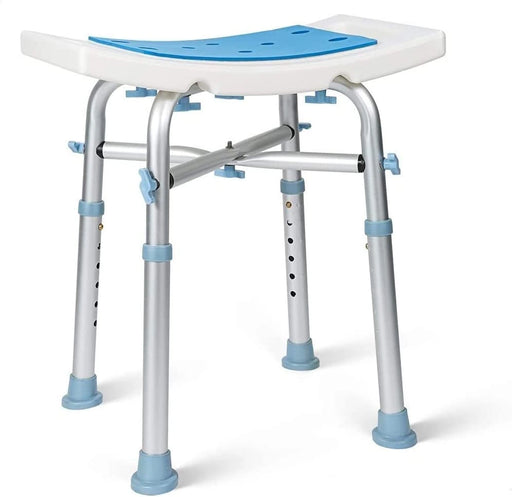 Sale
Sale
Padded & Bariatric - 500LBS Capacity Heavy Duty Shower Stool
Original price $57.99From Original price $36.99Original price $57.99Current price $36.99From $36.99Current price $36.99OasisSpace Medical Heavy Duty Bariatric Shower Stool OasisSpace Medical Heavy Duty Bariatric Shower Stool is approved by the FDA, which is the hig...
View full detailsSaleOriginal price $57.99From Original price $36.99Original price $57.99Current price $36.99From $36.99Current price $36.99 -
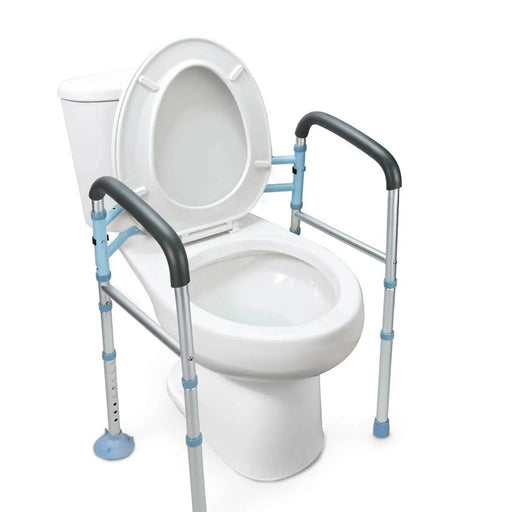 Sale
Sale
300LBS Capacity Stand Alone Toilet Safety Rail
Original price $69.99From Original price $44.99Original price $69.99Current price $44.99From $44.99Current price $44.99OasisSpace Toilet Safety Rails - Fit Any Toilet OaisSpace stand-alone toilet safety rails provide sturdy support for the elderly and people with ...
View full detailsSaleOriginal price $69.99From Original price $44.99Original price $69.99Current price $44.99From $44.99Current price $44.99







